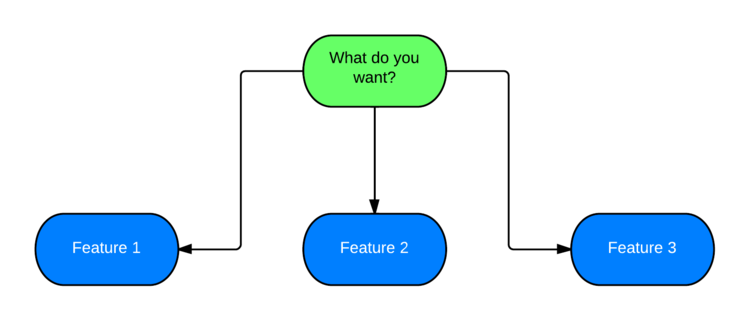Finance & Economics | Leadership & Strategy | Opinion
Never Ask What They Want Better Questions to Ask in User Interviews
Wouldn’t it be so easy if users just told you what they wanted? Nope.
By Chuck Liu March 21, 2021
The first rule of user research: never ask anyone what they want. — Erika Hall, Just Enough Research
I rave about user interviews. They’re cheap (see: free), potent (you get more than what you ask for), and efficient (you only really need to talk to five people).
But good interviewing takes practice.
It helps if you’re naturally curious about people, but if you aren’t, you can still fake it till you make it. For example, Michael Margolis of Google Ventures likes to get into character.
Like Erika Hall states above, when you embark on your user interviews, you’ll want to avoid asking what they want. Asking people what they want will lead you to the wrong insights. You will not discover the root cause of a problem, but rather what they envision as their own ideal solution.
Don’t Make User Interviews Hard For Yourself
When you ask a person what they want, you let them think within the realm of possibility. And that makes user research harder than it should be. If you’re trying to create a new product or experience that doesn’t exist yet, you’ll want to know what’s causing people to not be able to do what they want with the tools they currently have. That way, you can design for an entirely new experience or incremental improvement that helps them get the job done.
At KISSmetrics, I spend a lot of my time interviewing people about what they currently use to solve a problem. Here’s what I think are 3 better questions to ask. And I ask these all the time:
What are you trying to get done? (Gather context)
How do you currently do this? (Analyze workflow)
What could be better about how you do this? (Find opportunities)
What are you trying to get done? Why?
Getting background information about what a person is trying to do is critical to understanding your users. Things like how big their team is and how their role fits into the larger organization help frame the scale of a job that your product can help do better.
Imagine that you are a handyman. Wouldn’t you want to know whether you’re fixing a small leak or re-doing a whole room? You’ll need different tools for those jobs and the scale of those jobs are completely different.
It’s the same with user interviews. You’ll want to gain an understanding of what your users are trying to get done in order to get the necessary information back to your team. Your product and engineering teams will thank you for it.
What questions do you like to ask your customers to figure out what to build or develop? I’d love to hear them. Feel free to ask me anything on Twitter.'
HI everyone,
II am Harvey
asdfafsaf
asf
saf
as
fs
af
sa
